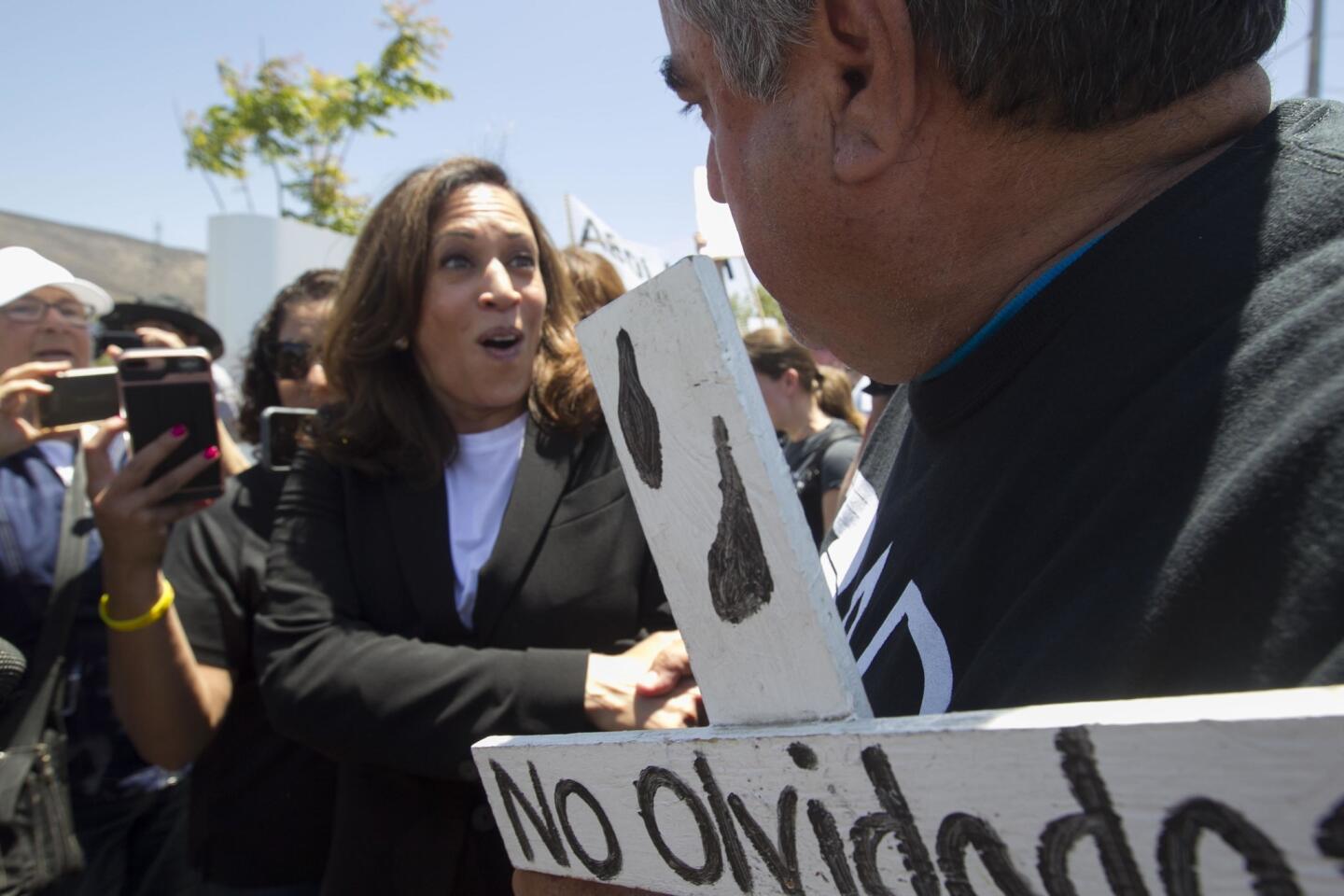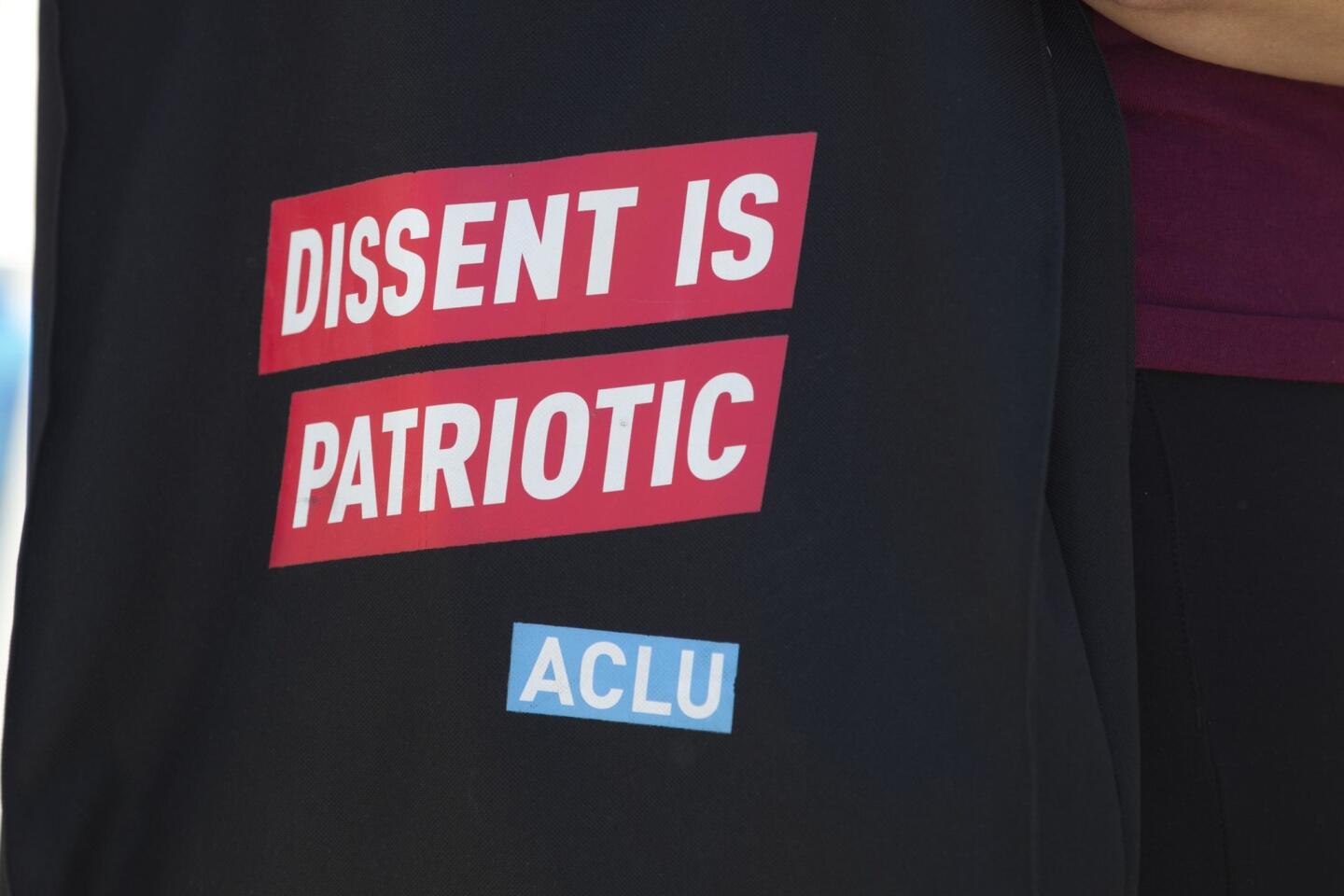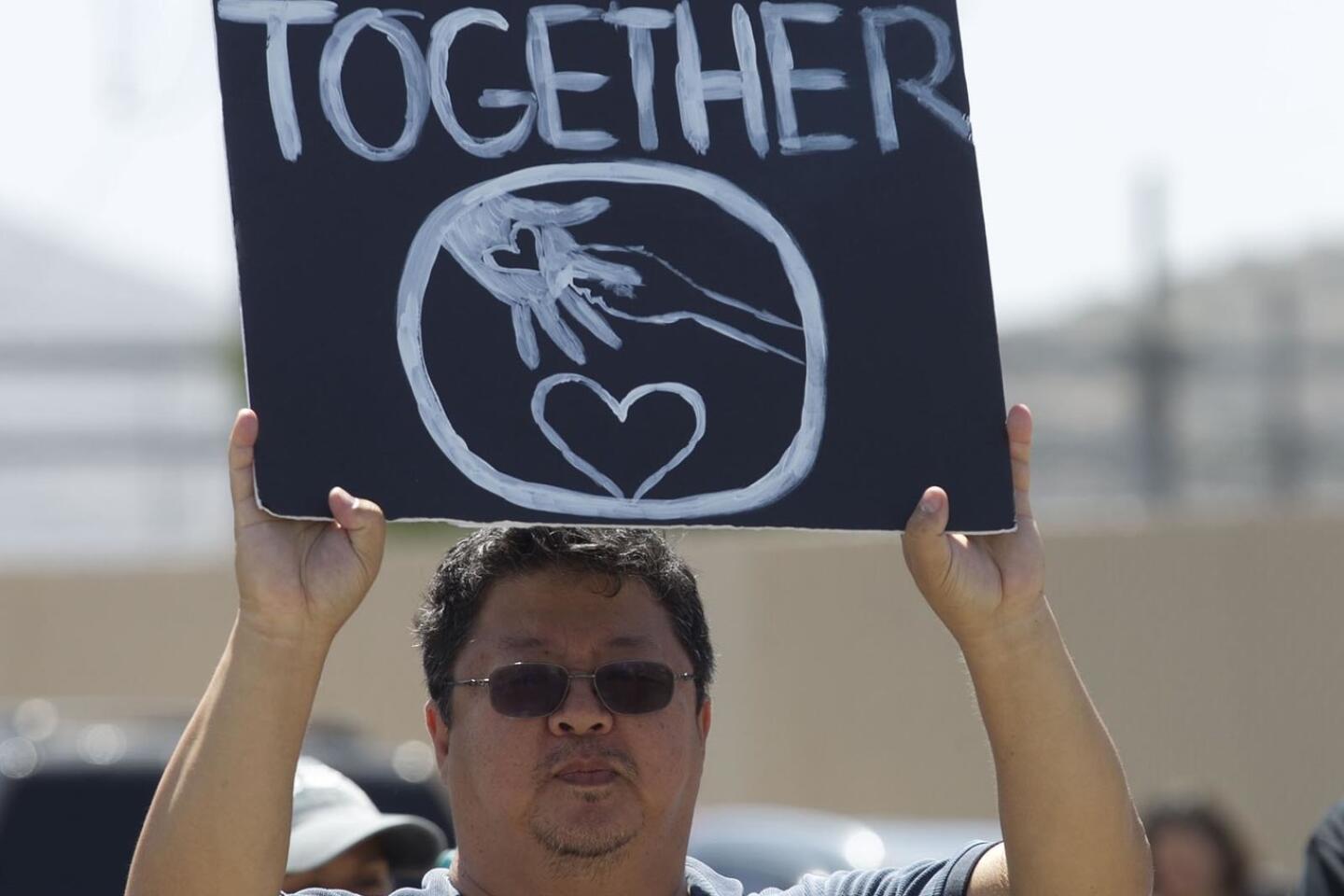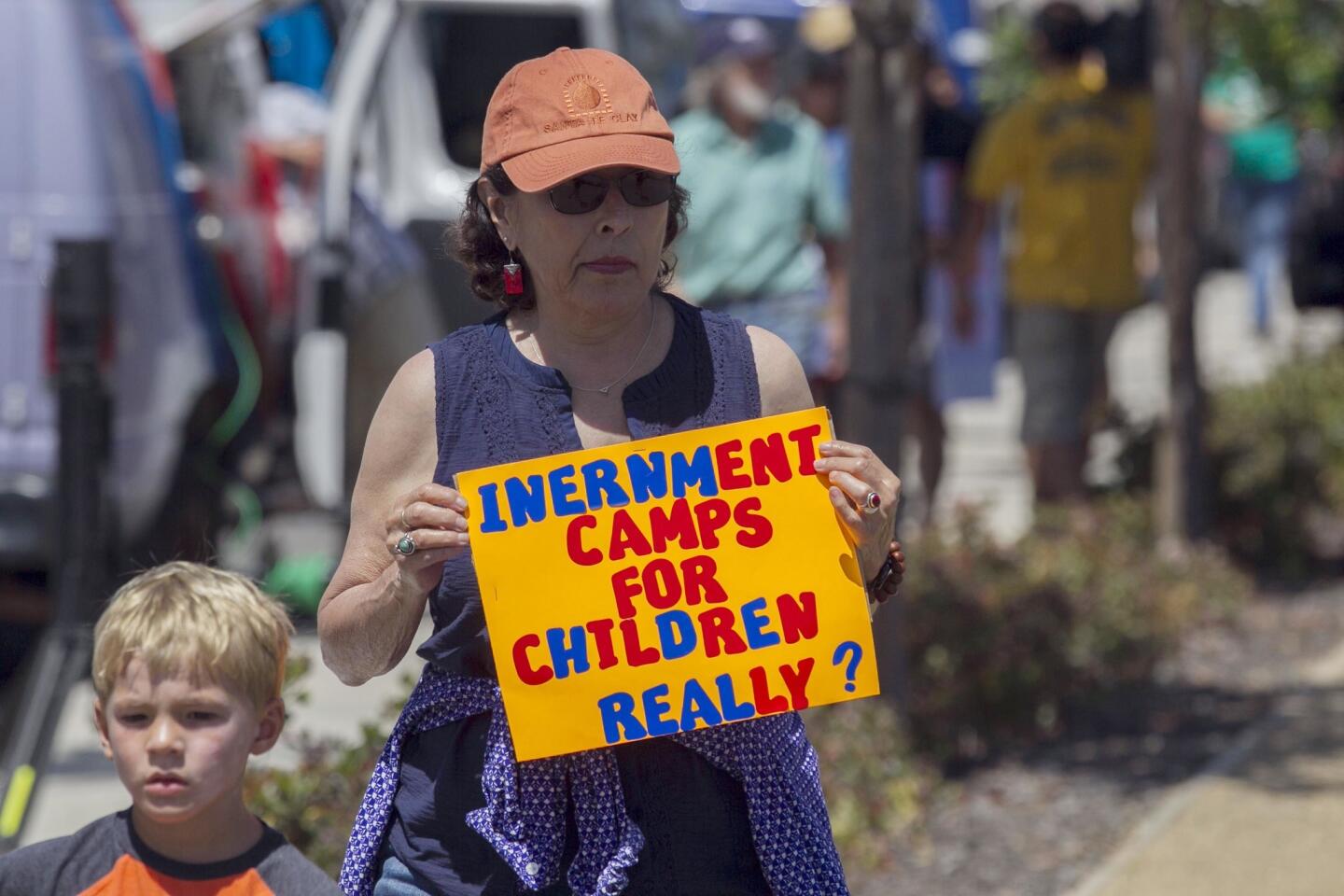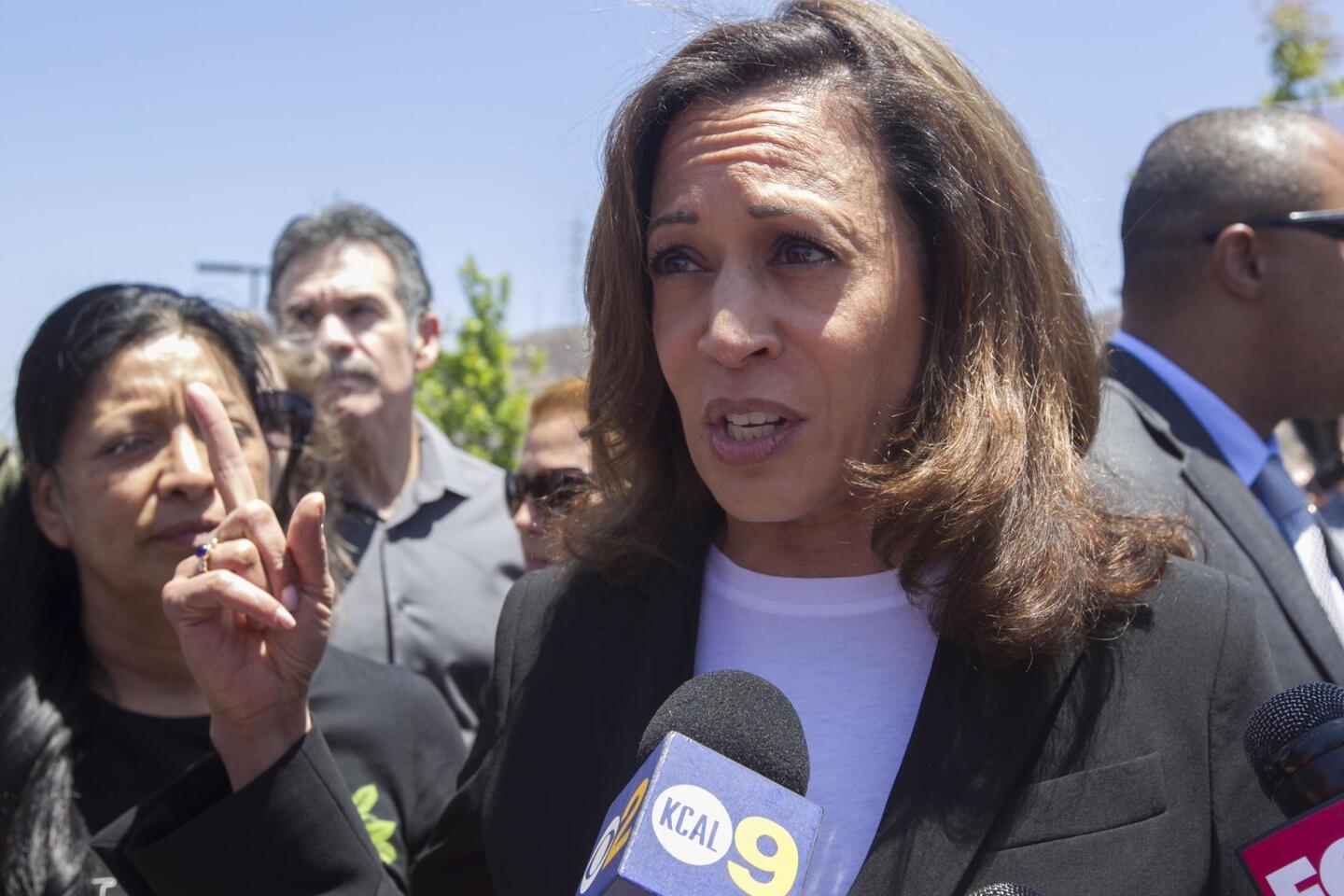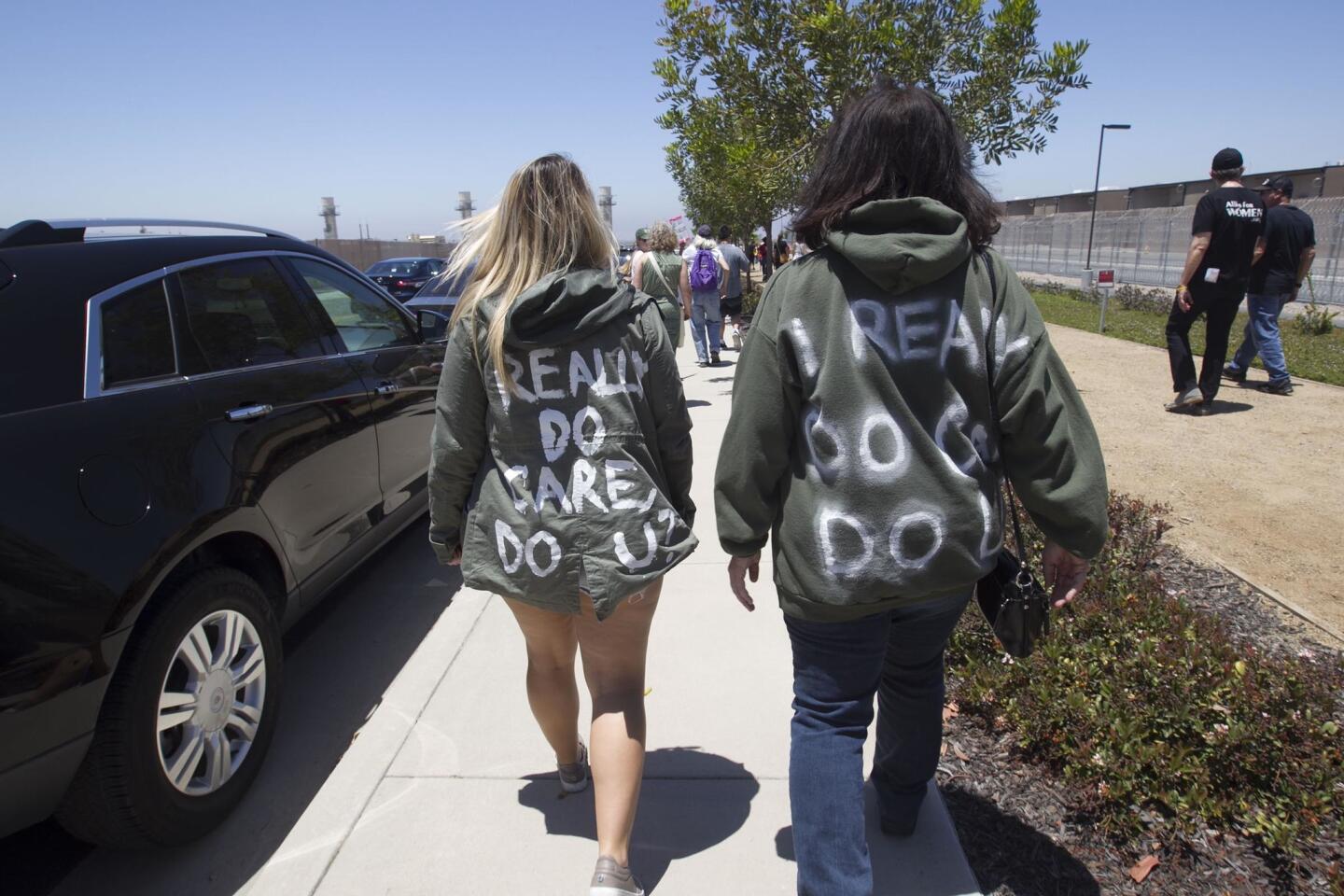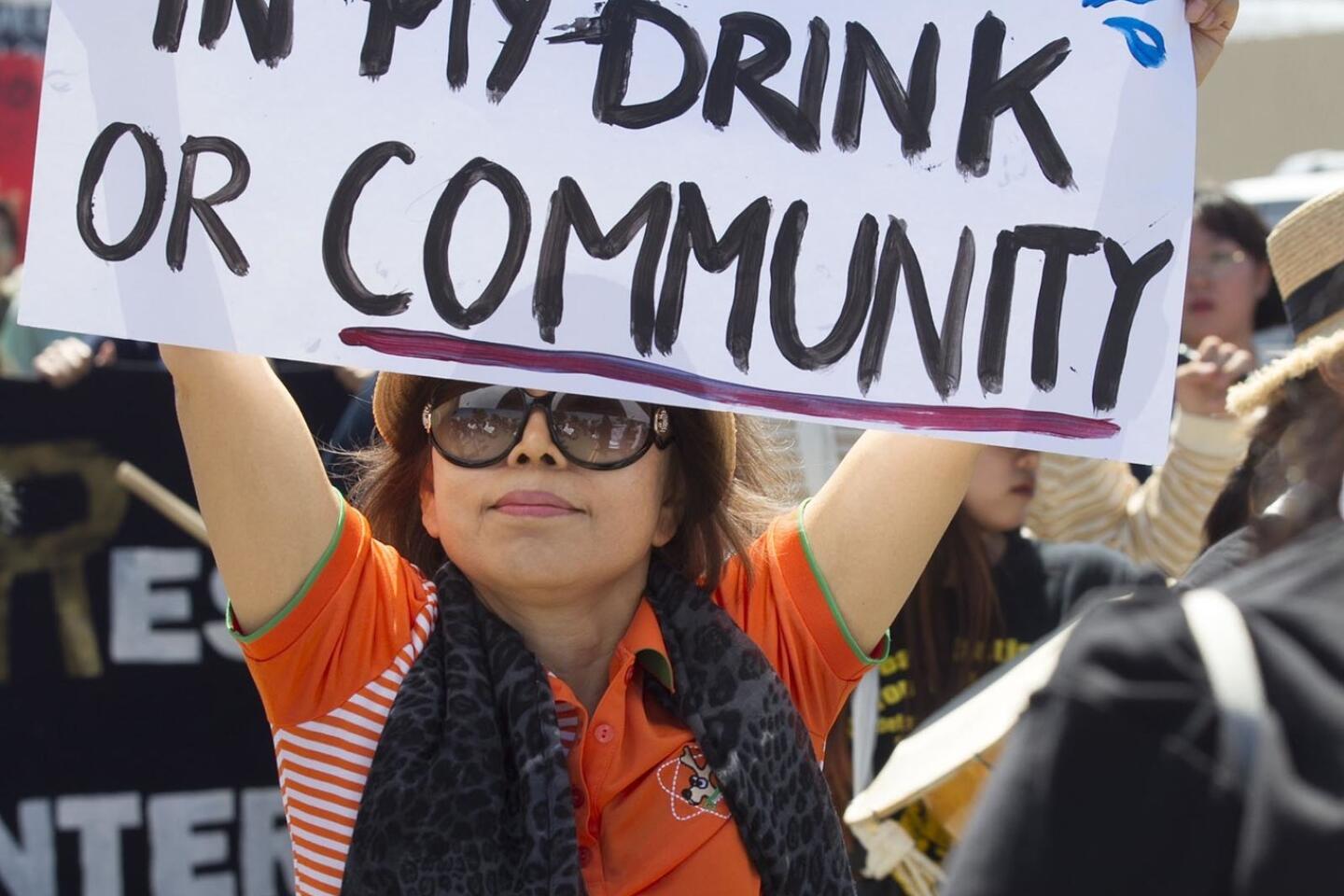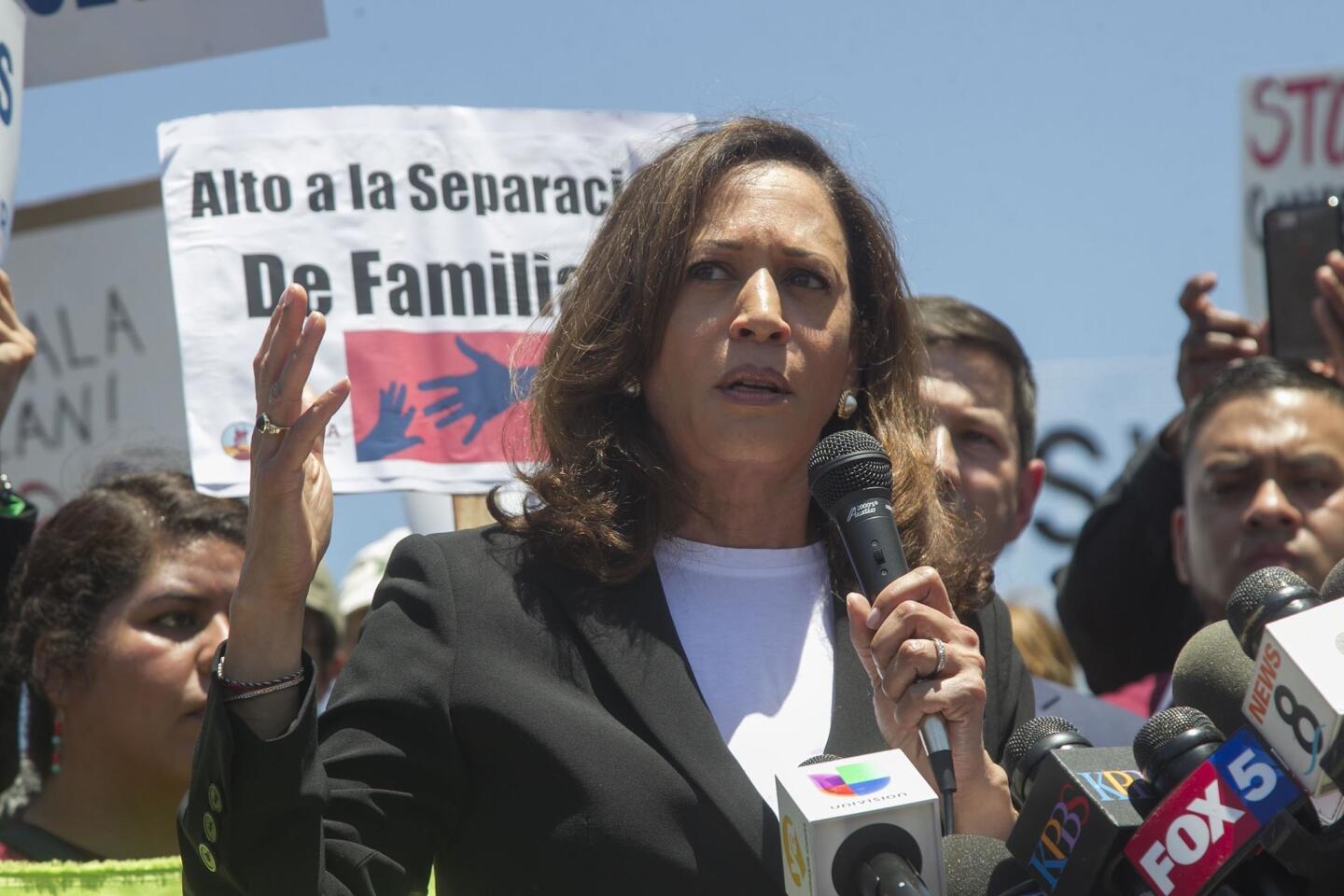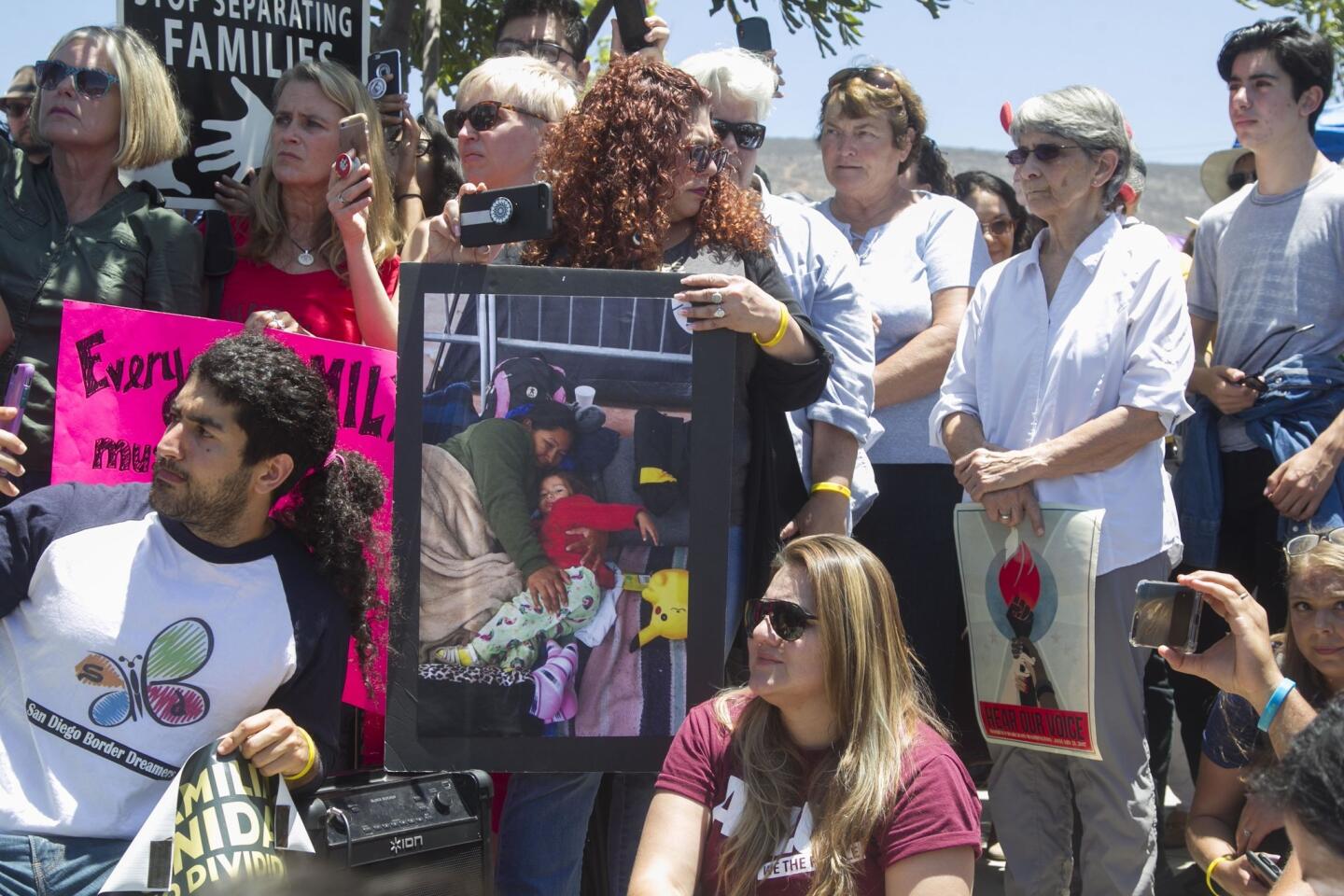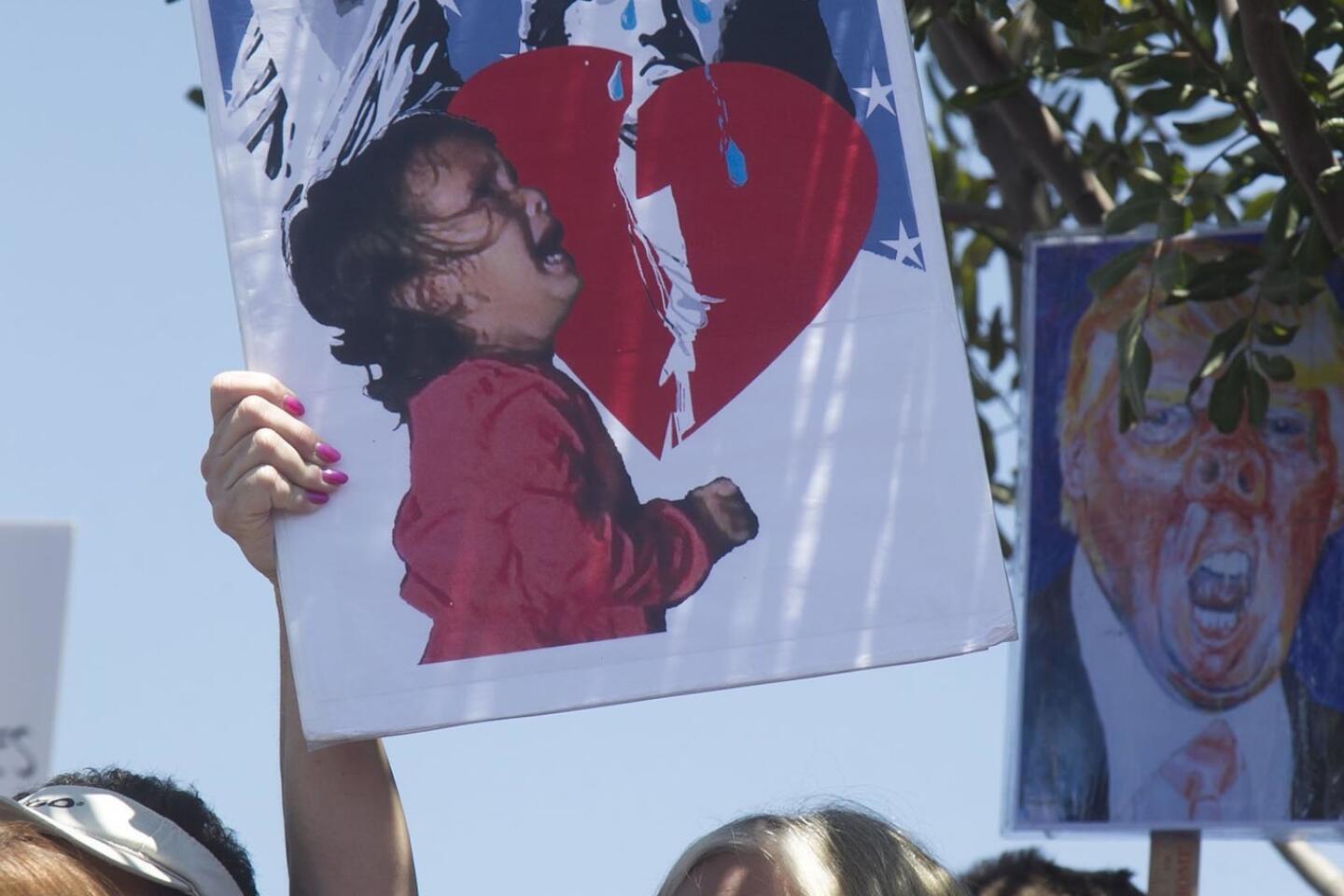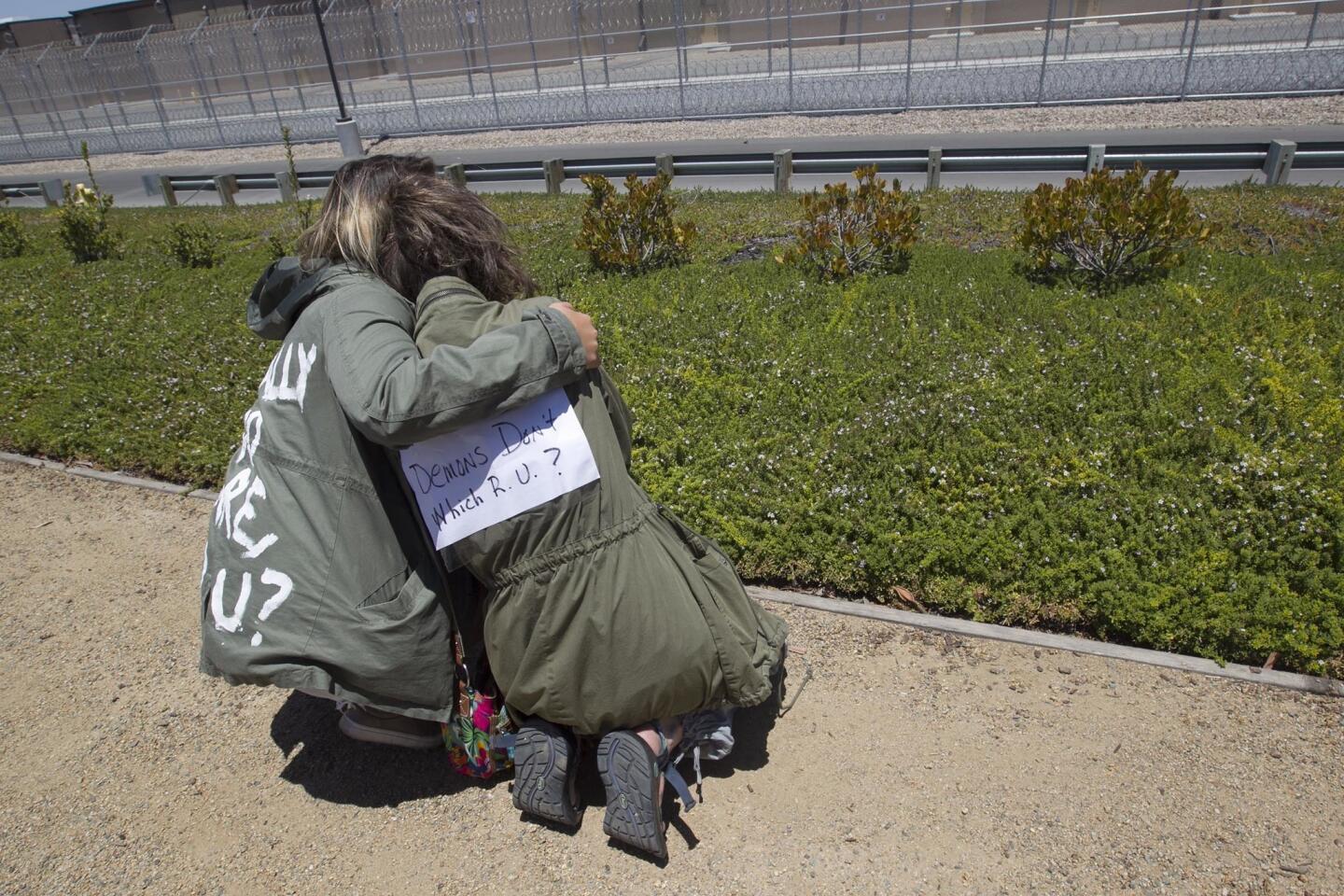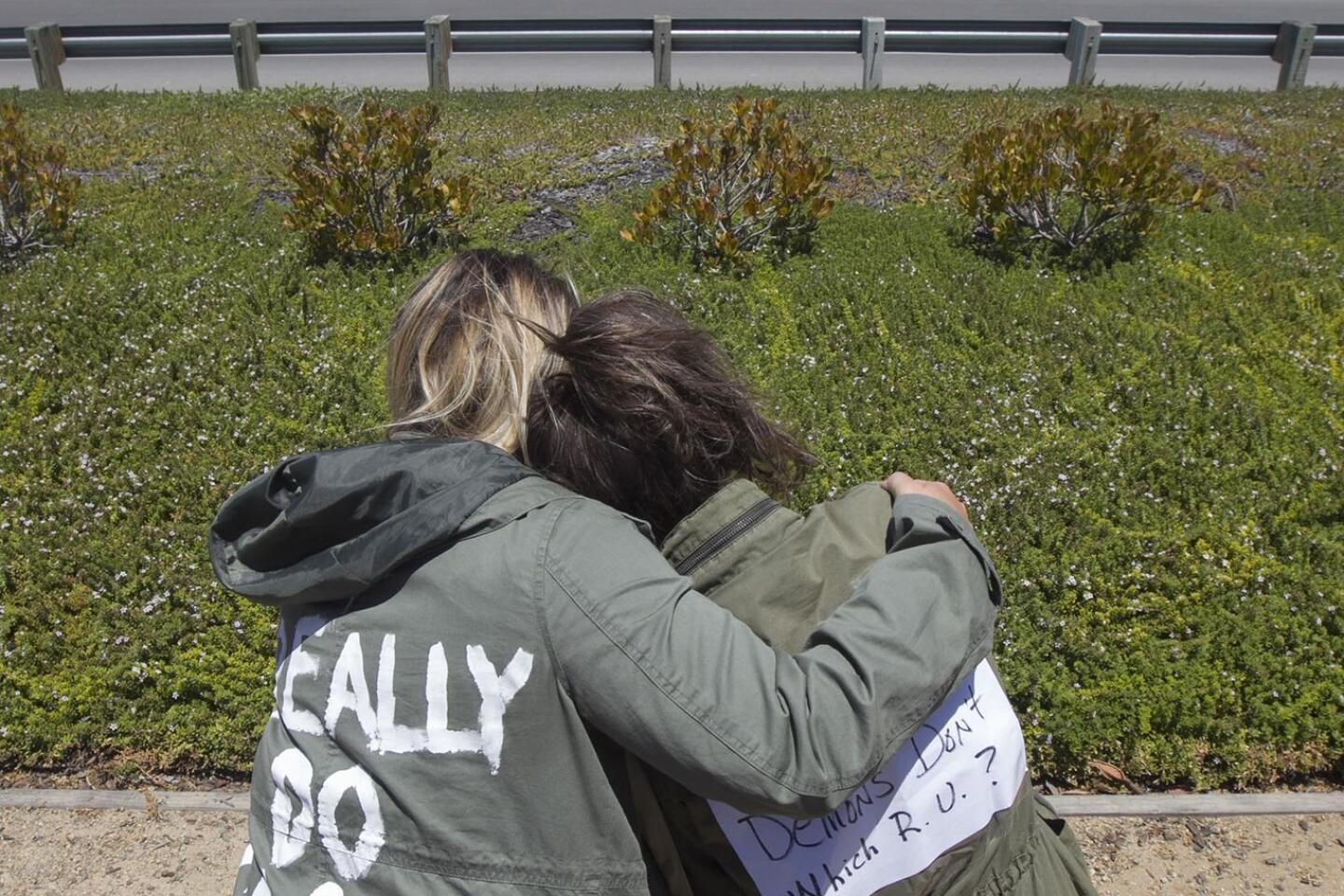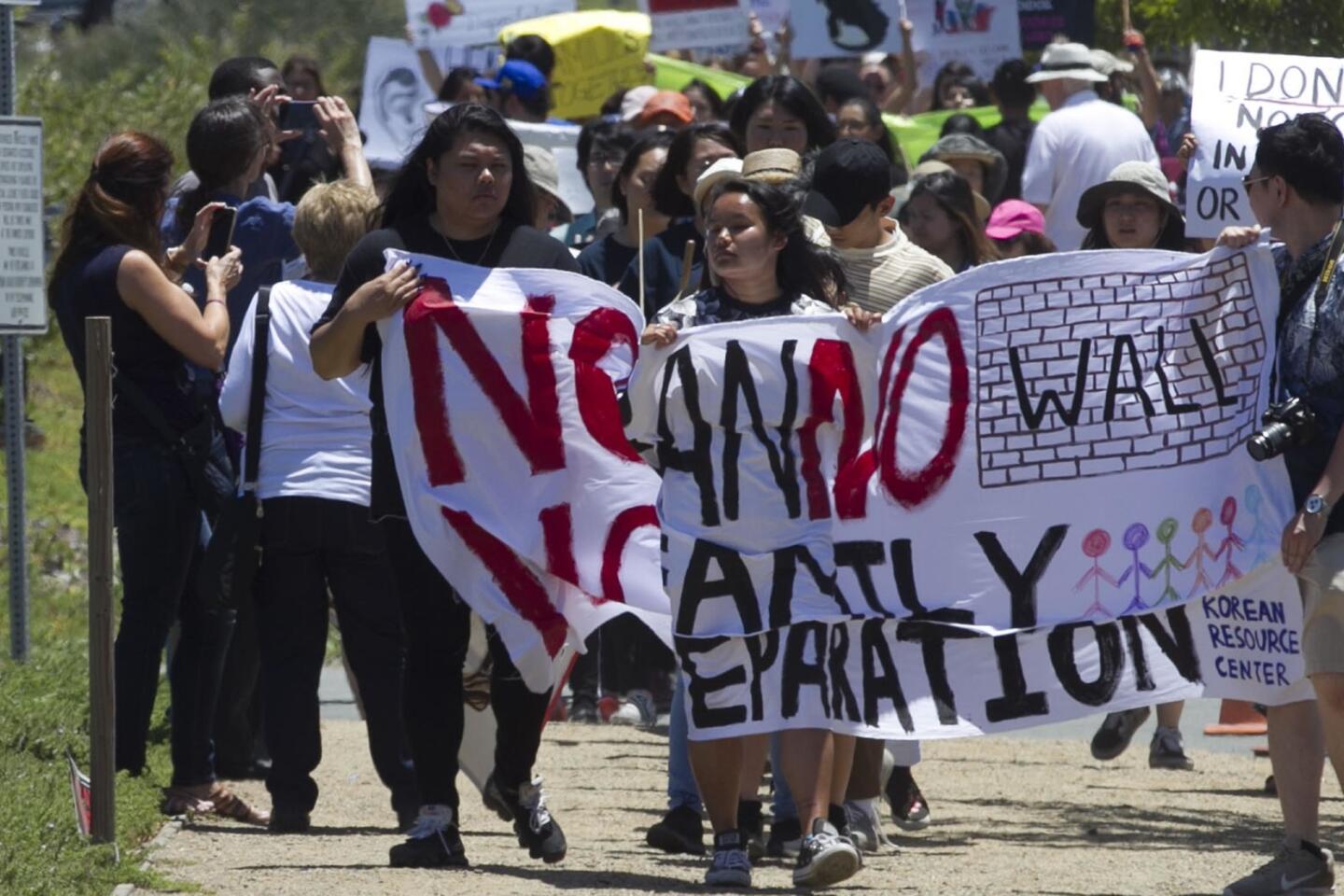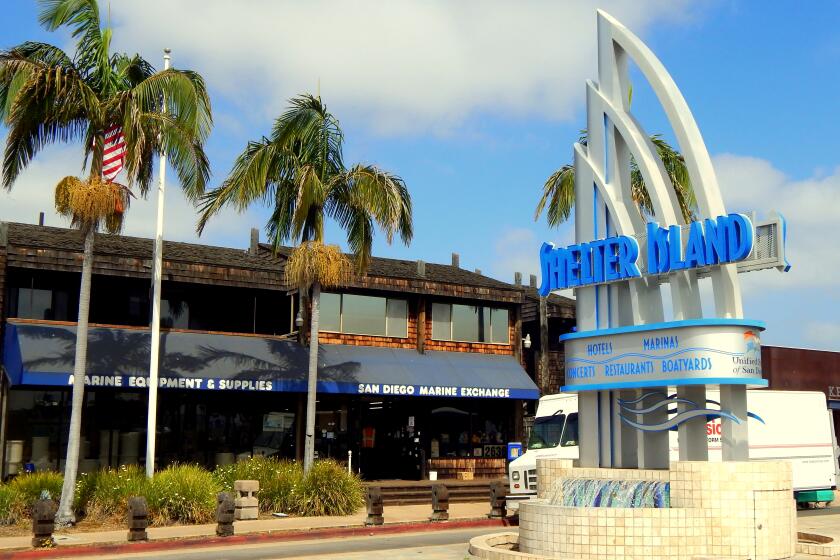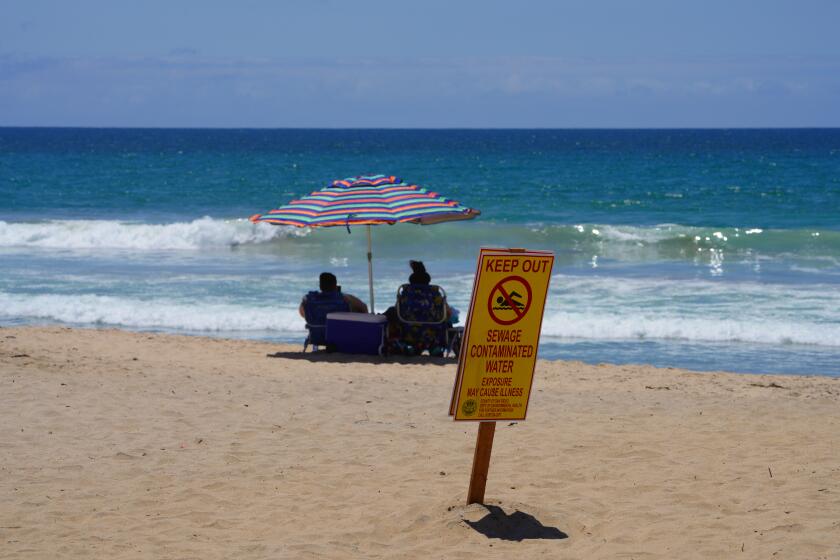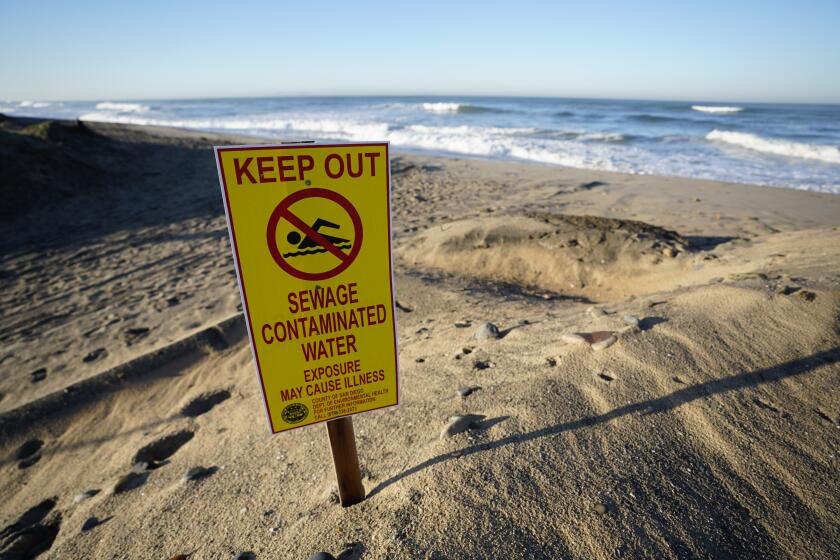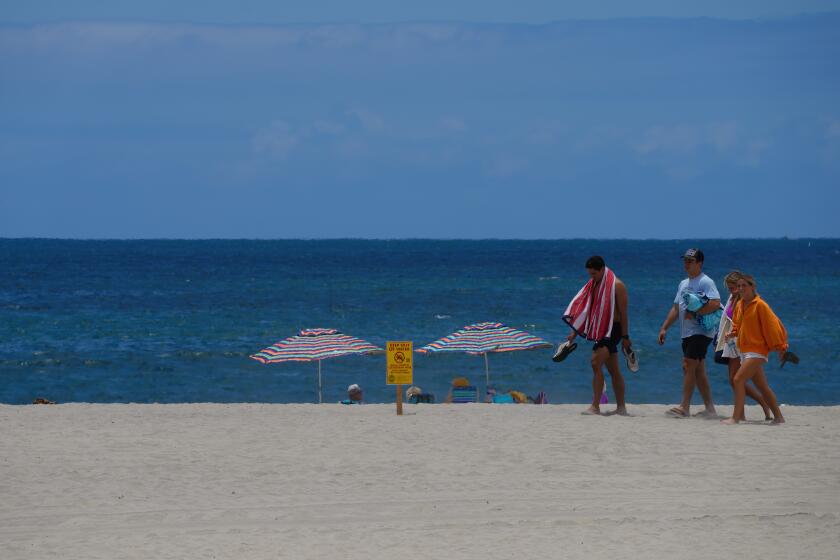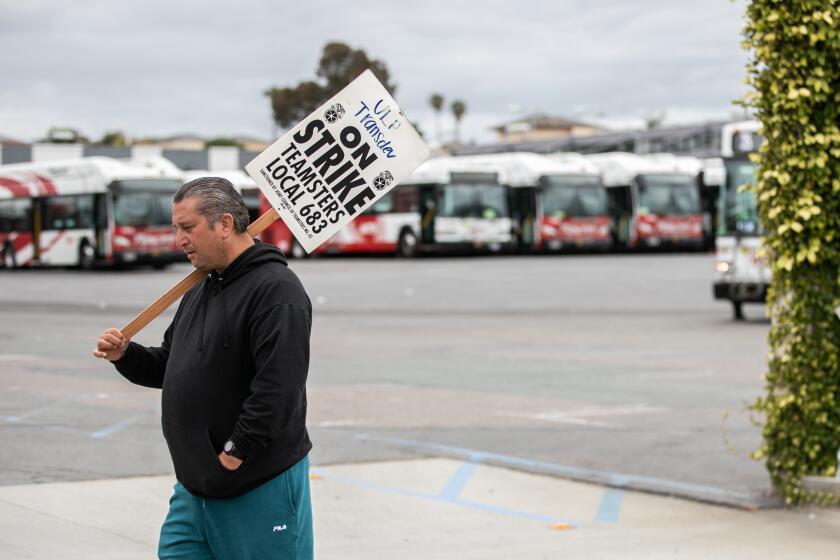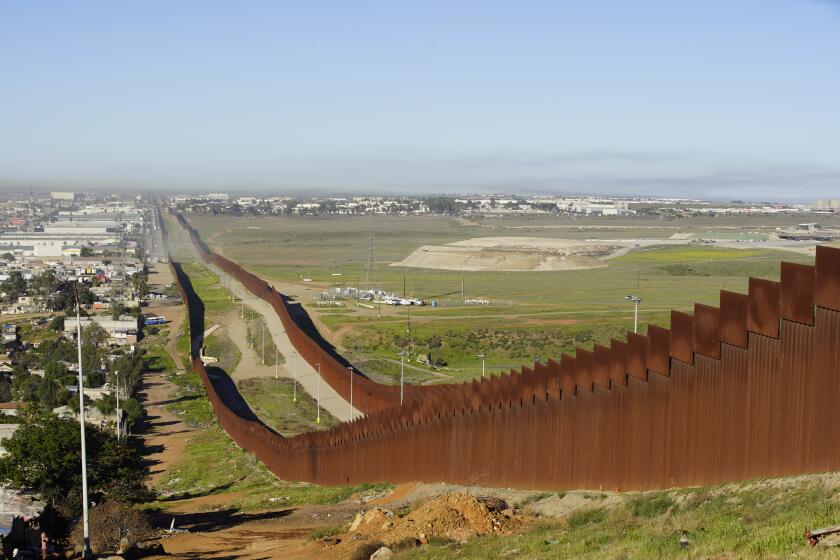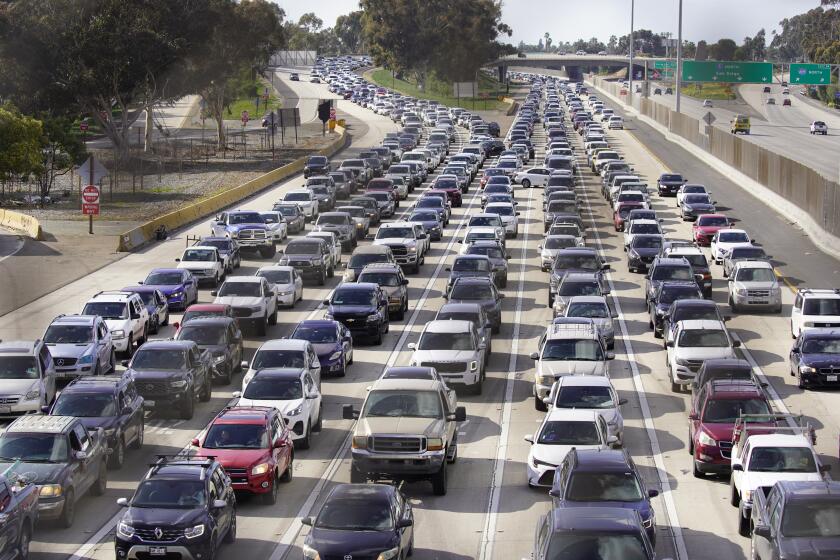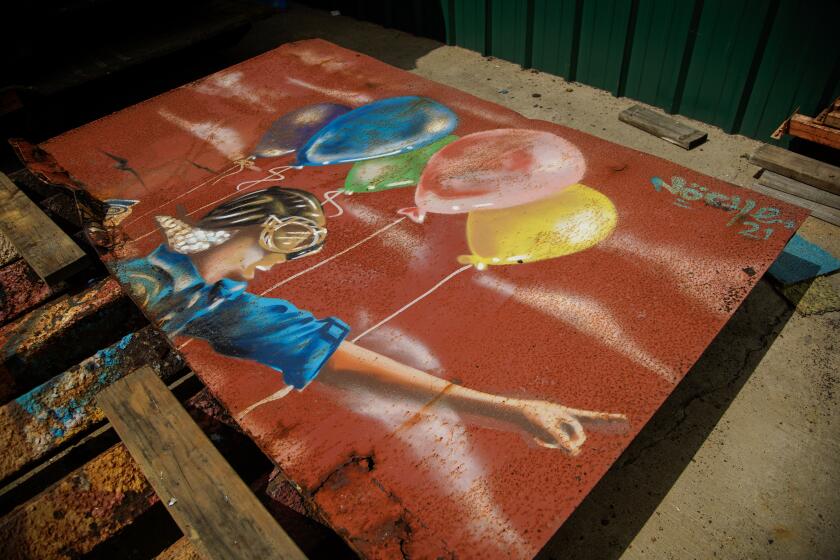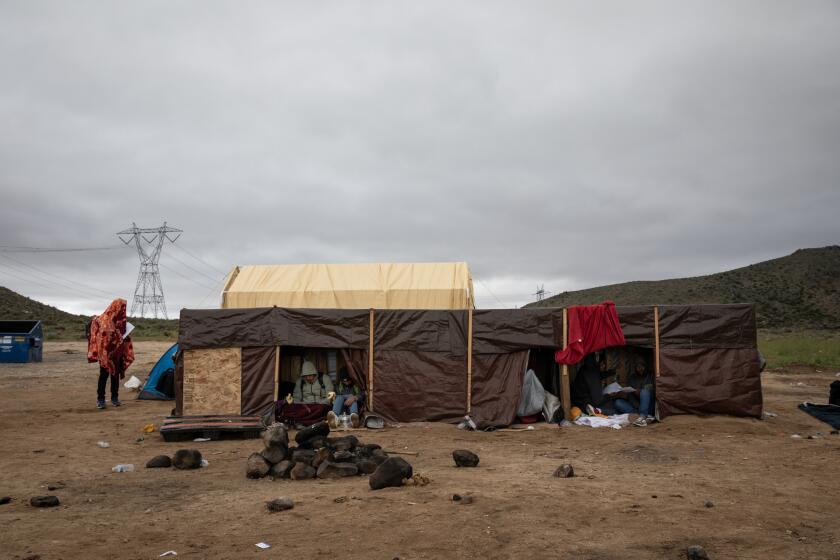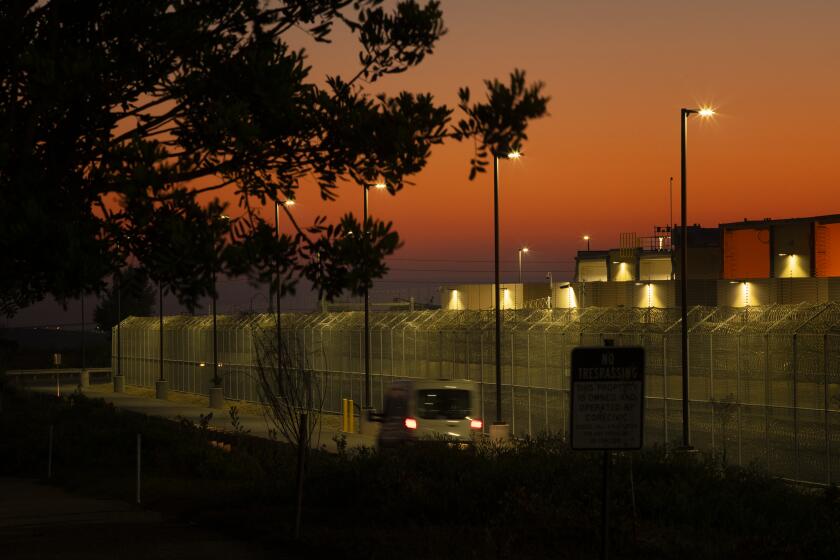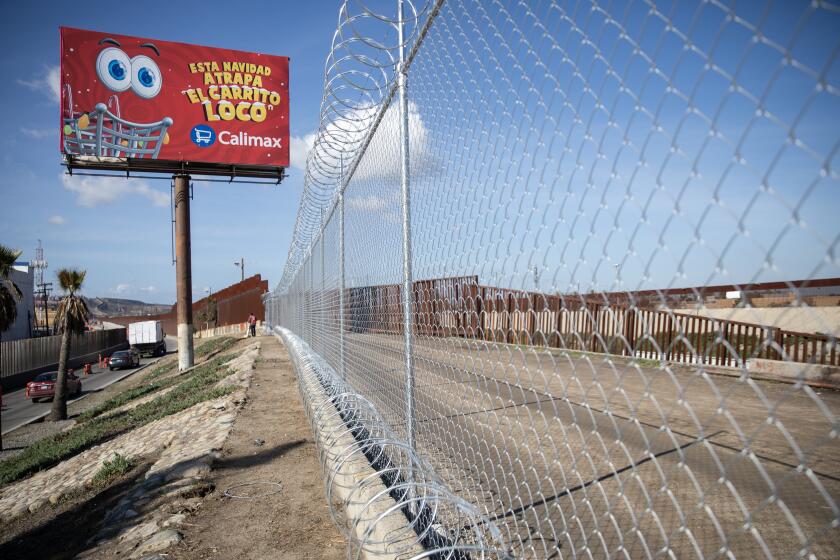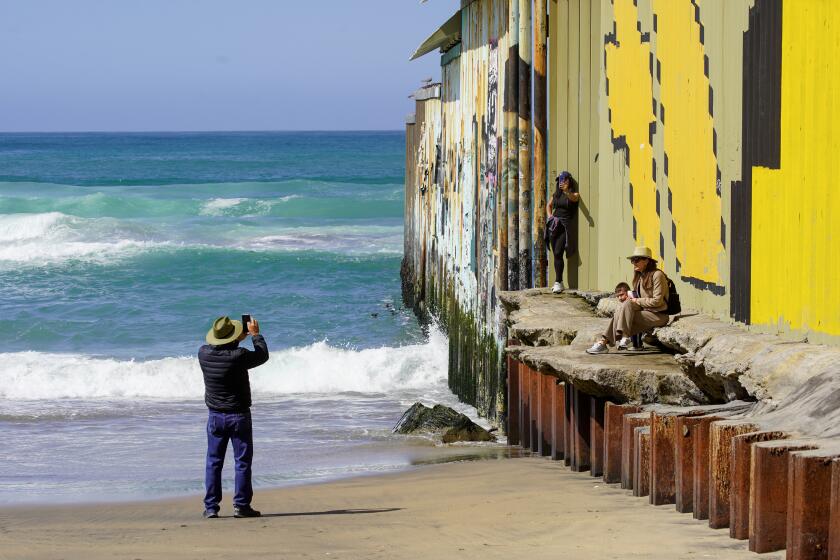Sen. Kamala Harris joins hundreds at San Diego border to protest Trump’s zero-tolerance immigration policy

U.S. Sen. Kamala Harris joined hundreds of protesters along the San Diego border with Mexico on Friday to denounce President Donald Trump for his zero-tolerance immigration policy, which has separated more than 2,300 youth from their families.
Trump’s immigrant policies amount to a “human rights abuse,” Harris said, addressing a boisterous crowd outside the Otay Mesa Detention Center, where she met with migrant women split up from their children.
“I spoke with the mothers who are there, and my heart is broken,” she said, adding: “These mothers in there think that they are alone. We need to remind them and everyone else that they are not alone, and that we all stand with them.”
Protesters cheered loudly, waving signs reading: “Abolish ICE,” “Keep families together,” “Immigrants make America great” and “Free the kids.”
“I just think what’s going on is the most un-American thing I can possibly imagine,” said Karen Reimus, 51, of Scripps Ranch, who attended the rally on Friday. “I just can’t believe that in the year 2018 children are being ripped from their parents’ arms in the United States of America.”
Pelosi, Democrats visit immigration holding facilities, blast Trump for child separations »
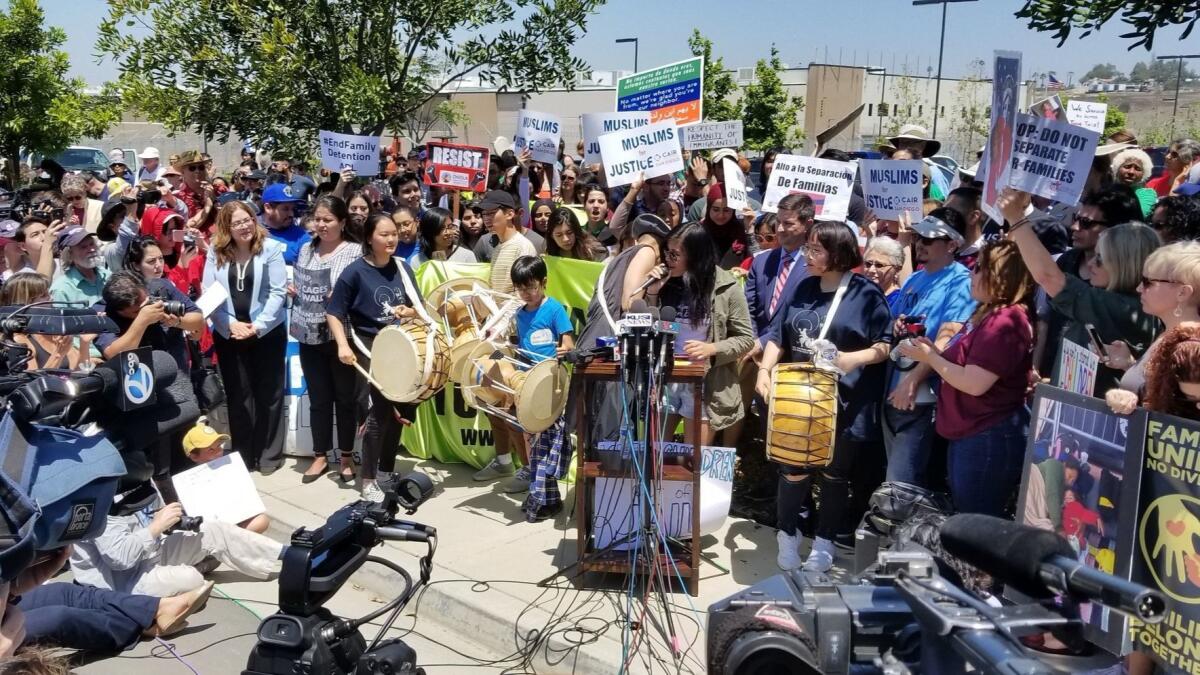
In May, the Trump administration rolled out a policy of criminally charging everyone caught trying to cross the border illegally into the United States.
As a result, parents, many fleeing violence-plagued countries in Central America, were locked up while their children were sent to facilities run by the Office of Refugee Resettlement.
Amid growing public outrage, Trump signed an executive order this week calling for an end to the family separations. Details were scant as of Friday, however, federal officials said they were preparing to house 20,000 migrant children on four American military bases.
Trump this week continued to defend his immigration crackdown while attacking Democrats, whom he has blamed for the current situation facing migrant families in U.S. custody.
“We’re going to keep families together, but the border’s going to be just as tough as it’s been,” he said at a public rally in Duluth, Minn. on Wednesday. “Democrats don’t care about the impact of uncontrolled migration on your communities, your schools, your hospitals, your jobs or your safety. Democrats put illegal immigrants before they put American citizens. … and we’re stopping it.”
The protest in San Diego on Friday drew a number of advocacy groups including the American Civil Liberties Union, which has criticized conditions under which migrants are being held.
Children don’t belong in jail, even with their parents, under any circumstances. Let’s be clear, jailing kids with their parents is not a solution.
— Leticia Cazares, board member of the ACLU of San Diego and Imperial Counties
The ACLU has challenged the family separations in court, as well as filed a class-action lawsuit against the private company that runs the Otay Mesa Detention Center, CoreCivic, alleging exploitation and forced labor.
Leticia Cazares, board member of the ACLU of San Diego and Imperial Counties, rejected the President’s new proposal to use indefinite detention to reunite families.
“Children don’t belong in jail, even with their parents, under any circumstances,” she said to applause from the crowd. “Let’s be clear, jailing kids with their parents is not a solution.”
Immigration and Customs Enforcement detention facilities, such as the one in Otay Mesa, are not designed to hold people as punishment. However, many at the rally, including Sen. Harris, challenged the notion that being at the facility wasn’t punitive.
“I’m am a career prosecutor,” she said. “I have visited many prisons and jails. That is a prison. You walk through the halls and the doors clink shut and there are bars on the windows.”
Separating refugee children is wrong regardless of the conditions in the holding facilities, said Weston Popichak, who made the drive from Oceanside for the protest.
“This is psychological torture to put kids that are in a very fragile or important part of their development in a state where you’re pulling them from their parents,” said the 31-year-old.
The administration said Friday that about 500 families have now been reunified after being separated at the border. At the same time, some migrant parents have been deported while their children remain in U.S. custody, raising concerns about whether they’ll be able to reunite.
“As it stands today, there is no plan or procedure in place by the federal government to ensure the safe and effective reunification of parents and their young children,” Carmen Chavez, executive director of Casa Cornelia Law Center, said as the crowd repeatedly shouted “shame.”
“Indeed, shame,” she added. “The time has come to explore not simply whether our laws are being enforced but whether our laws are just.”
In order to indefinitely detain families together, Trump’s lawyers have asked a Federal District Court in Los Angeles to modify a 1997 court ruling, known as the Flores settlement. The decision requires children be released within 20 days, either to a family member or a government-licensed shelter. The President’s call for ending family separations while maintaining his zero-tolerance policy could hinge on the outcome.
The Obama administration’s policy of detaining migrant families was also constrained by the 20-day rule after the Central American-refugee crisis first brought waves of migrants fleeing horrific violence to the U.S. border around 2014.
As migrants, including unaccompanied minors, continued to flood the border, the administration prioritized deportations of those with criminal records. It also provided millions in training and equipment to Mexico to control migration at its southern border from Guatemala, El Salvador and Honduras.
Twitter: @jemersmith
Phone: (619) 293-2234
Get Essential San Diego, weekday mornings
Get top headlines from the Union-Tribune in your inbox weekday mornings, including top news, local, sports, business, entertainment and opinion.
You may occasionally receive promotional content from the San Diego Union-Tribune.
